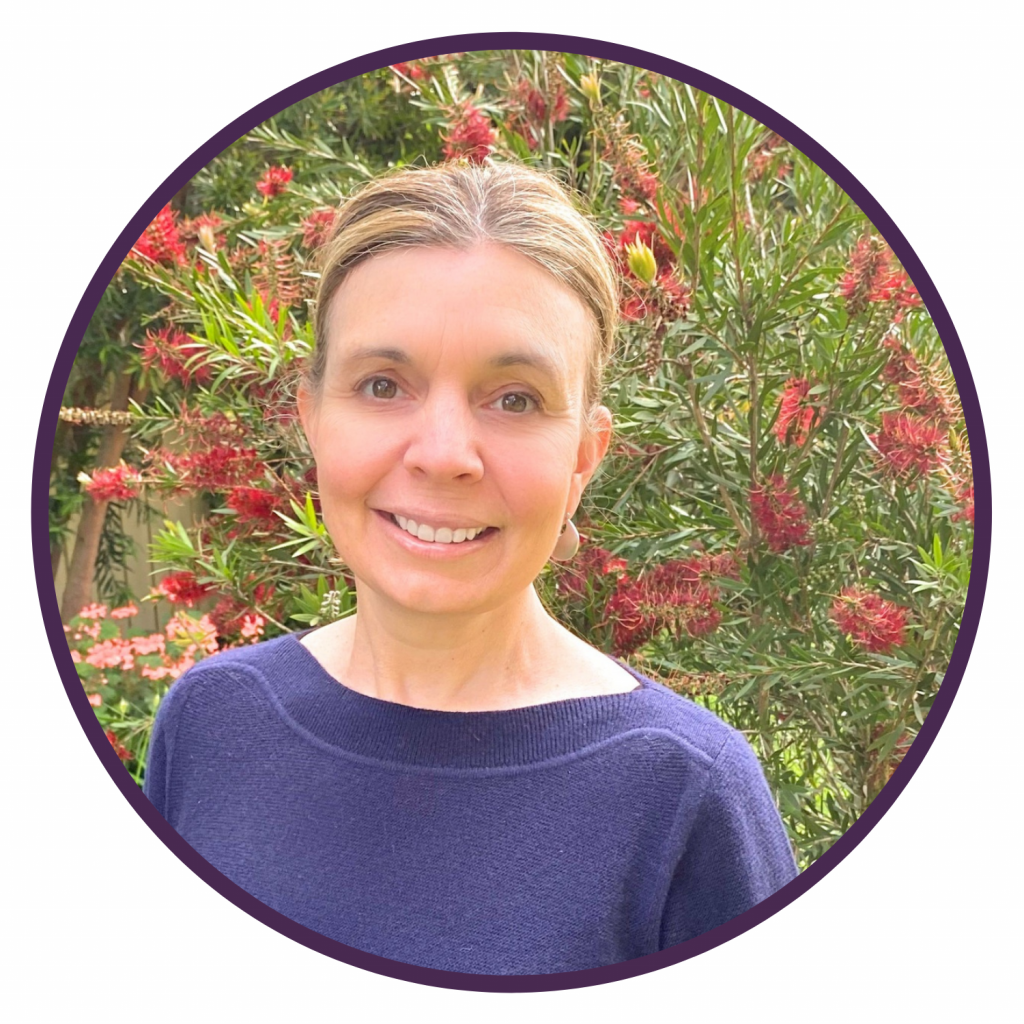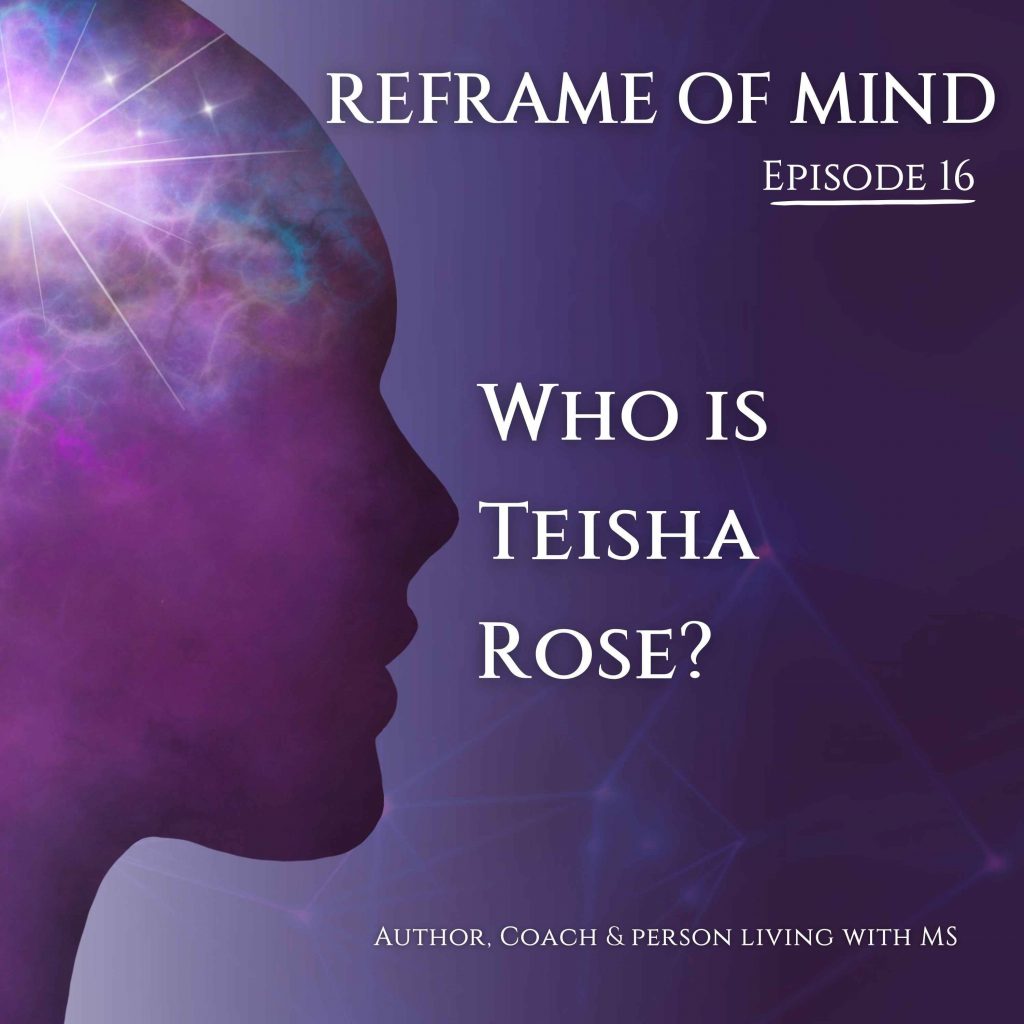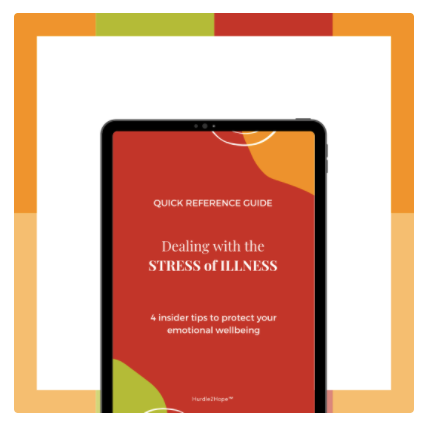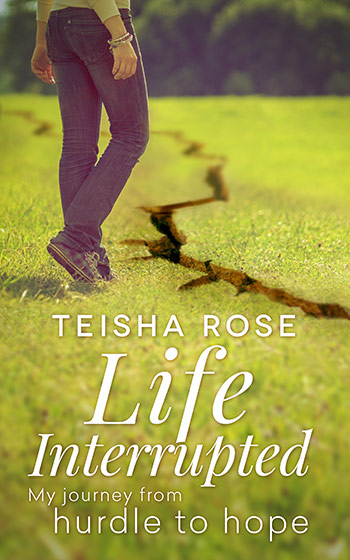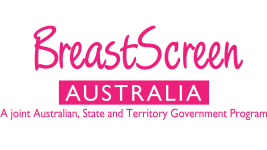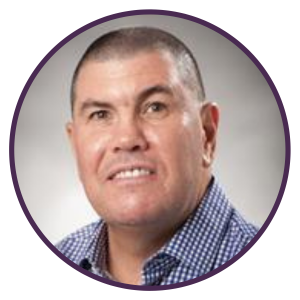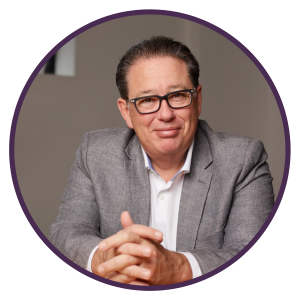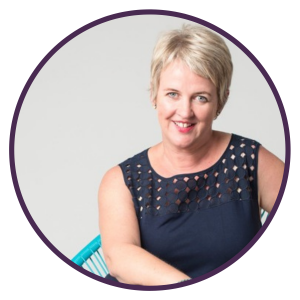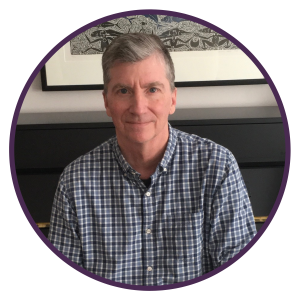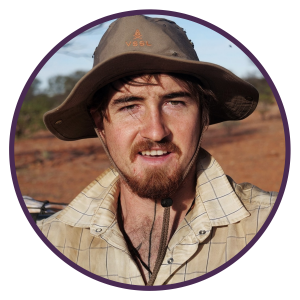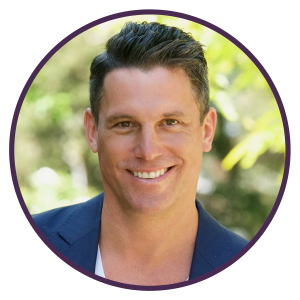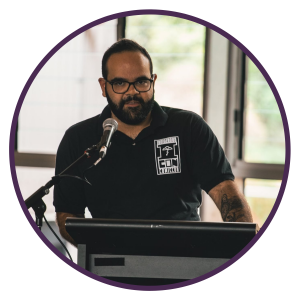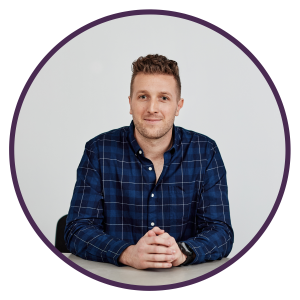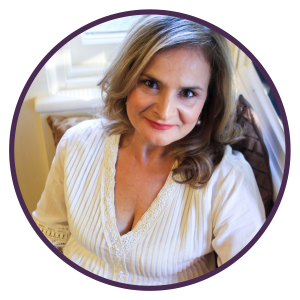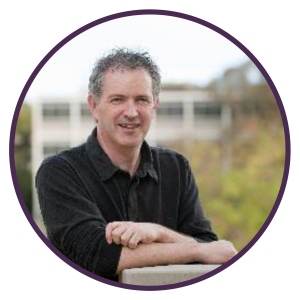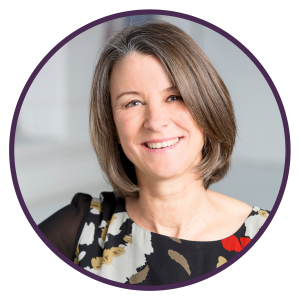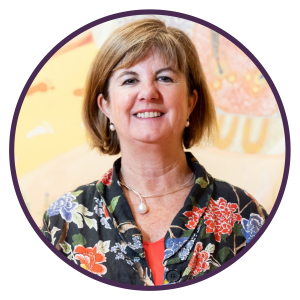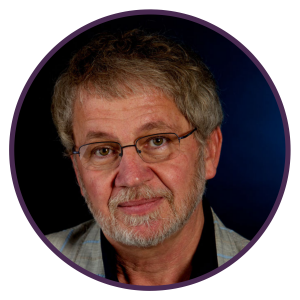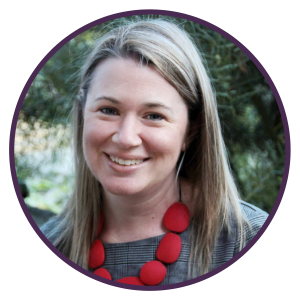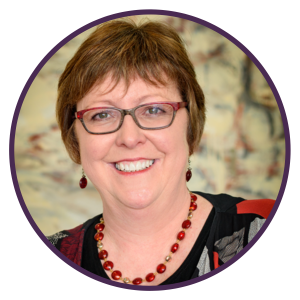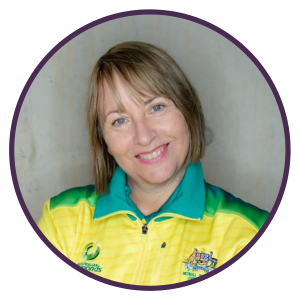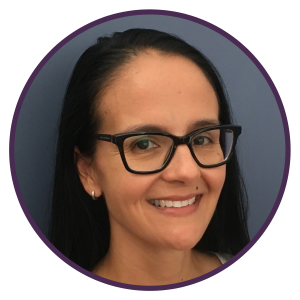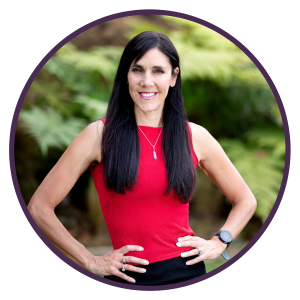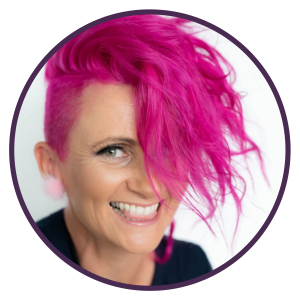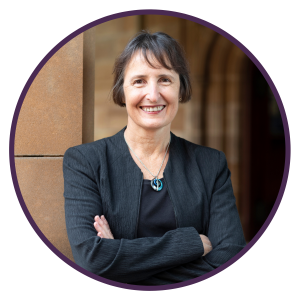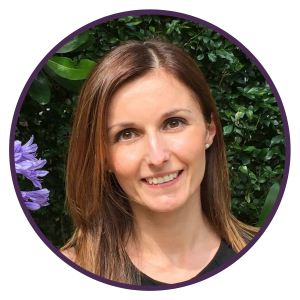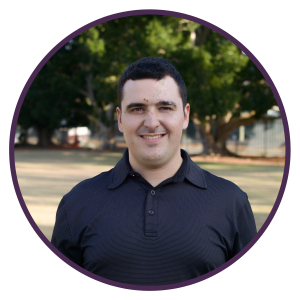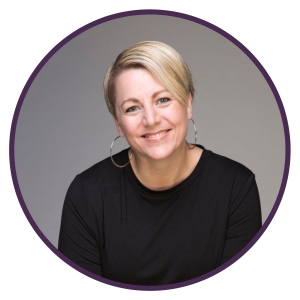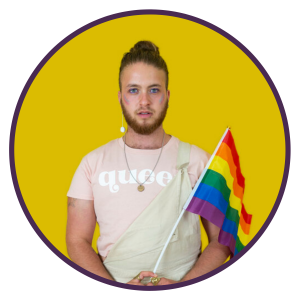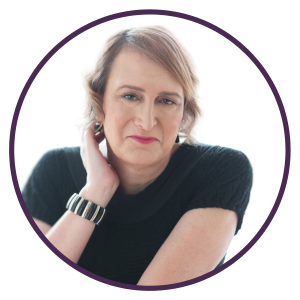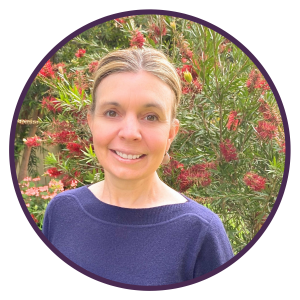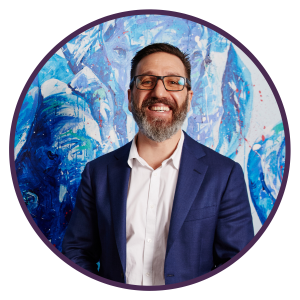Transcript has been auto-generated and may contain errors. Your support on our patreon would go towards being able to provide a human-edited transcript for accessibility.
Transcript
00:00:00
We acknowledge the Yuggera and Kaurna nations as traditional custodians of the land on which we work, live and learn, and they’re continuing connection with the land waters and community.
00:00:09
We pay our respects to them and their elders past and present.
00:00:12
All content related to this program is for general informational purposes only and contains stories and discussion around mental health that may be disturbing to some listeners.
00:00:22
If you’re concerned about yourself or someone you know, please seek professional and individual advice and support.
00:00:28
More details are contained in our show notes.
00:00:31
My life is such a tiny blip in history I don’t want to waste it being consumed by Ms and how this has negatively impacted my life.
00:00:44
That’s resilience, coach and author Teisha Rose and this is Reframe of Mind
00:00:50
The podcast that cuts through the platitudes and gets to the core of living, authentically challenging our assumptions and improving mental health with the guidance of good science, philosophy and learning from other people’s lived experiences.
00:01:02
And where your hosts Louise Pool and Andy Leroy.
00:01:06
And in the last few episodes we’ve been talking about the concept of reframing our experiences to help get through difficult situations.
00:01:13
And acknowledging that along the way, sometimes it takes more than just a change in perspective to get us through.
00:01:19
Professor Maree Teesson AC director for the Matilda Center for Research in Mental Health and Substance use, talked us through some strategies to help us identify when our mind might be playing tricks on us.
00:01:29
Stopping us from seeing only having a problem with alcohol for example.
00:01:33
Yeah, we’ve been on a journey since the beginning.
00:01:35
Of this series.
00:01:36
To find that authentic connection with our own emotions.
00:01:39
Yeah, what started as a quest for that magic ongoing state of happiness is now starting to look more like a standpoint that permanent happiness is something to be cautious of rather than aspire to.
00:01:51
Are those calls of toxic positivity, you know, count your blessings.
00:01:55
Good vibes only.
00:01:56
Or even someone else has got it worse than.
00:01:59
And they suppress what we’re actually feeling.
00:02:01
So instead of releasing those feelings and then allowing the nicer ones to come back in, we end up winding our inner spring so tight that it eventually packs a real emotional punch when unleashes all that pent up energy.
00:02:13
Yeah, and while changing perspective and approach might not be the only factor in overcoming something like an addiction.
00:02:19
It can play a part.
00:02:21
Can also play a part when dealing with chronic illness, yeah.
00:02:23
I mean, it won’t cure the illness, but as this episode guest points out, it can help to avoid defining.
00:02:29
Ourselves by the illness we have.
00:02:31
Our guest today. Teisha Rose had a life changing diagnosis at the age of 22 after finishing university, she’d started a corporate career, working in training and development, and then she was diagnosed with multiple sclerosis, which sent her life in a completely different direction.
00:02:46
Yeah, her life became dominated by chronic illnesses for several years and physically she was experiencing aggressive relapse.
00:02:52
This is as she hopped onto the medical roundabout of hospital stays in rehabilitation.
00:02:57
Teisha became frustrated by how her life had changed.
00:03:00
She feared for her future and she knew something had to change.
00:03:03
So how did you change from being fearful about her future, to being excited about it?
00:03:08
His book life interrupted tells her full story and she took some time out from her day to have a chat to us about that journey.
00:03:15
Would you give us kind of the, I suppose the abridged Cliff notes version of what is what? 15-20 years of your life?
00:03:24
It seems strange to whittle it down to a couple of sentences, but just like for people joining us on the journey right now you were diagnosed with Ms at 22.
00:03:32
Yeah, I was so I was 22 years living in the city of Melbourne. I’d just finished university working that Telstra head office. So life was going perfectly to plan.
00:03:42
And then I was diagnosed really out of the blue.
00:03:45
I was never sick and I all the sudden was diagnosed with Ms and for a number of years my health wasn’t good and by my health not being good I was experiencing relapses.
00:03:56
Won’t go into all the scientific.
00:03:58
I’m hopeless at explaining what Ms is, but basically it’s periods of dysfunction.
00:04:03
Where my mobility was impact.
00:04:05
So it’s a disease of the central nervous system, so I would find myself unable to walk.
00:04:10
I was in wheelchairs learning how to walk again.
00:04:12
Sometimes I couldn’t use my arms.
00:04:14
Sometimes my vision was not good and then I would recover and then I’ll return back to my life as is.
00:04:21
But it got to a point where I couldn’t continue on with my life.
00:04:25
It was.
00:04:25
So I had.
00:04:26
I went back to university.
00:04:28
I studied social work.
00:04:29
I traveled, I lived over in Scotland for a year and another time to celebrate good health.
00:04:35
I went over to Romania to actually volunteer with World Vision for a few months.
00:04:40
Yeah, so I had some significant changes and now we’re all instigated by periods of poor.
00:04:46
Health and just trying desperately to create.
00:04:49
A life where my health would improve.
00:04:51
I always think that when the people who’ve experienced the most trauma or pain or have experienced things like depression, anxiety, or anything that is like that are always the ones that want so much to be able to help others as well to help other people from hopefully either out of that or not experiencing that.
00:05:11
And that’s what you’re like.
00:05:13
Your story really resonates there with me because I think you probably have seen a lot of darkness and you want to be able to help people through that.
00:05:19
To know that there’s something.
00:05:20
Else at the end of that.
00:05:21
Yeah, absolutely and.
00:05:23
You know, like there’s such a sense of helplessness when you’re stuck in a body that you can’t move, or when you’re in hospital alone at night, just scared of what your future will be, and just at an absolute loss as to how you can possibly move forward, and whether you’ll ever get better.
00:05:41
And once you’ve experienced that.
00:05:44
And once you’ve learned how you and reflect on how you actually did manage to move forward, then you hope by sharing your story, but more importantly, your insights that it will help others so they don’t have to experience.
00:05:58
Those really, really dark periods.
00:06:01
I suppose it’s really useful sometimes just to start with some very basic understanding of who we are and what we do, and that sort of thing from your perspective with life interrupted.
00:06:11
This is a very personal journey that you’re actually expressing and sharing with everybody, so I’m just curious to begin with.
00:06:18
What motivated you to make your personal journey?
00:06:21
An open.
00:06:21
Book, yeah, that’s right.
00:06:22
I mean, for my friends that read my book, they were really surprised that I was so open because my journey with their mess has been really private I guess.
00:06:31
But I realize that I’ve learned so much on this journey.
00:06:35
I’ve had some incredible experiences.
00:06:37
That I want to share that with others.
00:06:40
I really wanted to demonstrate that when life is interrupted, great things can still happen.
00:06:46
As you move forward.
00:06:47
Seems to be more focused on that moving forward as well, rather than dwelling on the negative things that can happen as a result of the chronic illness or disability.
00:06:58
He seems to have found a.
00:06:59
Way out of that.
00:06:59
Yeah, very much so and I think I was really hesitant just to talk about myself.
00:07:05
And just to keep going over all the dark pier.
00:07:08
Kids and I really wanted to focus on the positives that came out of that and what you can do with those learnings to move forward.
00:07:17
And I think to as at my background as a social worker as well.
00:07:20
I was very aware that I’m not alone that there’s so many different challenges we all experience and I wanted to share my learnings.
00:07:29
From this macho.
00:07:30
Orange to help others.
00:07:32
It’s almost like.
00:07:33
As well, sometimes we hear things in popular culture in things we read and things we see where there’s almost a superstition about talking about some of these sorts of things like we’re going to be attracting more of it.
00:07:44
Did you have an inkling of that kind of fear while you were stepping into this journey?
00:07:48
I think it’s all to do timing.
00:07:51
I think I wouldn’t have been ready to do this in the 1st 10 years of living with Ms when I was going through really difficult times.
00:07:59
My health wasn’t good.
00:08:00
I kept experiencing relapse has spent a lot of time in and out of hospital and rehab.
00:08:05
I wasn’t in the right space.
00:08:07
Yes, to share any learnings, but I think when I started reflecting back sort of at the 1015 year mark then I was in the right place and I wasn’t concerned.
00:08:18
I think I’ve done so much work on myself at that time.
00:08:21
I wasn’t concerned about attracting the negative.
00:08:24
I’ve done a lot and a big believer in.
00:08:27
The laws of attraction and really focusing on the positives and that’s why I was really, I guess, motivated to focus on what I’d learned so I could continue on with the.
00:08:40
Sir teacher evaluated how she’d been treating herself and how she’d been ignoring what was really important to her in the goals that she was setting, and the achievement she was making.
00:08:48
Like always, nearly killing myself Ms wise of like I look back and smile at it now like I was scared of letting go a job training people in customer service and let’s compromise my health for that.
00:09:01
Nor these amazing things have happened since, but you.
00:09:03
So caught up in.
00:09:04
That that yeah, it’s it’s really difficult and I.
00:09:08
Reflected back years later, thinking why did I push myself so hard at you?
00:09:15
I always you know, if you had to get really good marks to get honors, I push and push and push myself to get those marks.
00:09:22
And I thought I don’t even want to get into research.
00:09:25
I don’t need to do honours, but you know, if it was there, I wouldn’t prove that I could do it.
00:09:30
And I realize that I was looking externally for confirmation of my worth.
00:09:35
And that was the same in jobs.
00:09:37
And I thought I need to.
00:09:39
Do look within and so when I was doing jobs which wouldn’t compromise my health but wouldn’t challenge me.
00:09:47
You know mentally then I looked at other ways and that’s when I wrote my book, so I was getting frustrated that I couldn’t work in positions that would show my full potential and I thought, well, why not channel?
00:09:59
Fast work were need to work to, you know, get money into survive but then channel my creative energy.
00:10:07
And channel myself into doing something that I could do that yeah and for me that outlet was writing a book.
00:10:15
One of the.
00:10:15
Things I I think it was in an interview that I saw you do you said, was that you were timing your symptoms when you were like in those early days of still working like that.
00:10:25
To work around that so you knew.
00:10:28
When it was going to happen and I just wonder how much of that is trying to compromise yourself so that you can accommodate others and accommodate situations that maybe you didn’t even truly want to be in because they didn’t align with that purpose.
00:10:41
Yeah, totally, and I think you do.
00:10:44
Like I didn’t want people thinking I didn’t have a good work ethic.
00:10:47
You know for me is like I don’t want to take.
00:10:49
Time off and work for not being well and it’s like this is ridiculous.
00:10:56
I can’t actually physically get to the office or I can’t, you know, stand up to deliver training or I can’t and I’m putting so much pressure on myself not to let others down instead of to really prioritizing my own.
00:11:11
Health, so I’m a lot better at doing that now because when you do go through the dark periods you realize the people you’re worried about letting down.
00:11:19
They’re not there.
00:11:20
Yeah, you know you, your managers, not there or yeah, so it does it.
00:11:25
It changes things but you know a lot of that.
00:11:28
That was a long time ago, so I’m hoping now to that with changes even it’s been real.
00:11:36
Awakening with COVID to realize that gosh, we can do so much.
00:11:40
How a flexible workplace?
00:11:43
How much better is that for people living with illnesses or whatever it is?
00:11:48
And or you know, mums returning to work or there’s so much we can do to help now but.
00:11:55
Despite other people arguing for her limitations, Tisha was able to adjust her own mindset.
00:12:01
How much of this battle for you was trying to deflect the negative opinions of other people compared to what you’re actually going through itself?
00:12:09
I mean, I was extremely fortunate.
00:12:11
My family are a really positive, really supportive of any decisions are made, which is good, and I’ve got an incredible partner who I met.
00:12:21
Then at age 30, so I’d already gone through some of these dark times, but he’s been, you know, around and really positive.
00:12:29
And extremely.
00:12:31
Positive in a positive way as well.
00:12:33
I couldn’t cope with someone who was, you know, making sure always asking.
00:12:37
Now you’re right you, you know he’s always like take big steps, you’re right, yeah.
00:12:42
So he’s really laid back with the door, which is good back to being surrounded by people.
00:12:50
Then you have to block out negative.
00:12:52
Comments you have to have a real inner confidence that the decisions you make are right for your journey and for me.
00:13:00
I kept thinking that yeah, have your opinion, but at the end of the day, you’re not gonna be in hospital bed or sitting in the wheelchair with me unable to move.
00:13:08
And sometimes I have made decisions which people.
00:13:12
I know give you funny looks even leaving Telstra.
00:13:15
I was on a really good income.
00:13:17
There’s great supports there.
00:13:19
And I left that to travel overseas by myself, you know?
00:13:23
So I was told by financial advisor that was a stupid move.
00:13:26
You know Telstra paid a great pension and.
00:13:28
I was like well.
00:13:29
My mid 20s or my friends are traveling.
00:13:31
I want to travel.
00:13:32
I can you know I’m up and walking now when I get out of here and keep going so I was confident.
00:13:39
That was the right decision for me, and it was the best decision I’ve ever.
00:13:42
Right?
00:13:42
I think some people have center that would think that’s an incredibly brave decision to make from where I sit as well.
00:13:47
You know, I’ve recently made the decision with all these to start this business and we’re bootstrapping and trying to get things started without any kind of financial backing, which is really interesting.
00:13:56
Other peoples opinions aside, I want to come back to the concept of sympathy and how you actually.
00:14:03
Dealt with what can sometimes be well meaning, but really misplaced.
00:14:06
Is that something that can actually bog you down as you’re trying to move forward?
00:14:10
Yeah, I think people soon learned it just didn’t work for me.
00:14:13
To, you know, I was never surrounded and.
00:14:16
I guess you attract like minded people.
00:14:18
So I was never surrounded by too many people who would come into the hospital, see what I was looking like and say Oh no, you know what can we do?
00:14:28
And I just if anyone engaged like that, I’d just like.
00:14:31
Yep, fine thanks.
00:14:33
You know I just shut it down because it just wasn’t helpful for me.
00:14:37
I just and.
00:14:38
A game that wasn’t denying what my experience was like.
00:14:41
I had a nurse once.
00:14:43
I know.
00:14:43
I think, you know, talking, or I think you know she might.
00:14:46
Be in denial and I’m.
00:14:47
Like I’m lying here, unable to move.
00:14:49
No denying that, but I’m just not going to deal with it in the way you think I should.
00:14:55
Good yeah, it’s you do have to be really strong.
00:14:58
You really have to block out what other people are thinking and really yeah, have that inner confidence and I think even decision to travel or what you know to go away by myself built that confidence in me which which will.
00:15:13
Score is there a tendency to?
00:15:16
Get stuck sometimes in a period of grief or around that grief response.
00:15:22
When entering a period of darkness with a chronic illness or or something of that nature.
00:15:26
You know?
00:15:27
Totally, I think you actually sometimes can’t see past what’s in front of you and it can be really difficult and.
00:15:35
And that’s OK sometimes as well, like I talk about if you are in a place where, like, for example, lying in hospital bed, unable to move.
00:15:44
Sometimes you can’t see past that, and that’s OK.
00:15:47
You need to do all types of things to protect your emotional well being during those times.
00:15:52
By, for example, staying in the moment, not letting your mind wander too far ahead because you go into such dark places and you just don’t know how to get out of there.
00:16:03
And I also think that sometimes people almost feel more comfort in that grief.
00:16:10
But it is just really hard.
00:16:12
To pull yourself out of it, and sometimes you don’t want to, you just wanna sit with those emotions and I think that’s OK sometimes until you’re in the place where you can move.
00:16:24
Forward and whether that’s when you’re starting to feel a little bit better.
00:16:28
Whether it’s when you become more actively involved.
00:16:32
In getting better.
00:16:33
When I was in hospital, I really struggled when I was just lying passively on a hospital bed being pumped with drugs unable to move, but as soon as.
00:16:44
I started getting involved in my recovery.
00:16:47
Then I felt like I was moving forward in some of that grief because I could see a way through it.
00:16:53
It really struck me reading through your material and listening to you speak that what you actually say is that it’s really important not to deflect any of those emotions that it’s important to.
00:17:03
Be with where you are.
00:17:04
Absolutely, because you can’t deny those emotions you know.
00:17:09
You do need to feel them.
00:17:11
You know I talk about being positive, but you don’t want to be positive and not authentic to how you feel.
00:17:17
Feeling so if you feel absolutely crap, that’s OK. Something bad’s happened you.
00:17:24
Know you’re allowed to feel.
00:17:26
Terrible, and it’s not fair that I can’t keep up with my friends.
00:17:30
In my 20s, it’s not fair that I can’t walk properly.
00:17:33
You know, there’s plenty of things that aren’t fair, but you need to make a choice.
00:17:37
Do you want to forever sit in that space?
00:17:40
Not happy with how things are or do you want to somehow find it within yourself to move forward?
00:17:48
And that’s why I really focus on moving forward because I wasn’t happy.
00:17:53
I’m being down and flat and negative and that’s no fun for people around you and going back to the law of attraction.
00:18:01
If you’re in that headspace, and you’re in that emotion.
00:18:05
You’re not attracting positives around you and you become sort of, I guess, blinded to any opportunities that could help you move forward.
00:18:13
I think when people do the thing that we are calling toxic positivity when they say I just don’t think about it or you could feel differently.
00:18:21
You don’t have to change anything.
00:18:23
I don’t think that they take into account chronic illnesses that get your attention because you can’t escape your own body.
00:18:30
So how?
00:18:31
How do you deal with changing your mindset?
00:18:33
When your body is working against you.
00:18:36
I think I’ve learned to focus on what I can do as opposed to really lamenting what I can no longer do from me.
00:18:44
Even when I was really I don’t like the word dysfunctional, but you know, I was really in mobile.
00:18:50
I was really unable to to walk or and at the beginning I was like, oh, that’s not fair.
00:18:57
You know I can’t walk, but then I was getting excited because I could, Rigoletto or I could move a foot or so I think.
00:19:04
It’s very much you know.
00:19:06
Not accepting where my body was.
00:19:08
Because gosh, I worked.
00:19:09
So hard in rehab and I do so much now like I have a neuro physio come to the house every two weeks.
00:19:17
I got osteo I.
00:19:18
Do so much to maximize the functioning that I have.
00:19:22
So yeah, I’m certainly focus on.
00:19:26
What I?
00:19:27
Can do and try and keep on improving that.
00:19:31
Yeah, so it is hard though.
00:19:33
Like when you do have limitations in your body, you’re constantly reminded of what you can’t do, but you really gotta try and shift your focus onto what you can do.
00:19:44
We spoke to someone else for this series and he was involved in a bus accident and he had to re teach himself how to get a lot of mobility back.
00:19:52
He said that one of the things that he would focus on every day just to help get him through like he said, like miniature goals and it would be if I can just far.
00:20:00
Today that would be enough for me to do.
00:20:04
I I don’t want to ask about all your bodily functions T shirt, but were there things is is that kind of your experience as well?
00:20:13
Like can you set those tiny achievable goals to build that momentum?
00:20:16
Absolutely, and I did in rehab. I know in 2003 when I really struggled it was really confronting, not being able to use your arms and hands like I couldn’t feel my hands. So even something like grabbing a glass of water.
00:20:32
And try not to spill.
00:20:33
It was too hard like I couldn’t do that.
00:20:35
But then after a few weeks in OT within OT I learned how to do that.
00:20:42
So is those little wins that you do have to celebrate.
00:20:46
But what I did find really confronting was that was easy in a hospital setting when you’re.
00:20:52
Surrounded by people with similar challenges.
00:20:54
But then when you put yourself into your everyday environment, that’s when it got really difficult, because then you kept being reminded of what you can’t do.
00:21:03
And I think, yeah, great, I can drink a glass of water without spilling it.
00:21:06
Fantastic, but I can’t.
00:21:08
You know, I can’t type on my computer or I can’t do all these other things.
00:21:12
So that’s when you have to really focus even more.
00:21:15
On those small wins, I also always made decisions and mapped out the worst worst case scenario so I knew, you know.
00:21:23
Worst case I had another relapse.
00:21:25
I was overseas.
00:21:26
They can will me on the plane and I can get home.
00:21:28
You know it’s OK so as soon as I acknowledge.
00:21:32
The plan then I didn’t keep thinking about it.
00:21:34
That’s interesting, you should bring that up because there’s somebody else that we’ve spoken to along our course of conversations.
00:21:39
Who was involved in essentially a shootout?
00:21:42
He was shot multiple times and survived, and one of the things that he said to us was that way before that happened.
00:21:49
He actually thought through the worst case scenario.
00:21:51
What’s the worst possible thing aside from death?
00:21:54
Obviously, what’s the worst possible thing that could happen to me?
00:21:56
And can I deal with that?
00:21:57
Is that similar to the way you’re actually planning your own contingencies?
00:22:00
Are looking forward for yourself.
00:22:02
Yeah, I think so.
00:22:03
Like I think once you do all of this work on yourself and I feel really bad when I said.
00:22:10
Early on, you know lots of people associate Ms with ending up in a wheelchair, and that’s like the worst case scenario, but I think.
00:22:17
Now all that I’ve.
00:22:18
Learned, now of course, I don’t want that to be my future, but if it was, there’s so much I’ve learned that I could do to make sure I could still have a really good life.
00:22:29
I could still.
00:22:30
Be really flexible in what I do in my outlook.
00:22:33
Yeah, there’s, there’s so much you could still do, so I never even think of that.
00:22:38
Now as a worst case scenario, because I think that’s a little bit offensive to to people who are sitting in the wheelchair because you think, well, that’s not my worst case scenario.
00:22:46
My worst case scenario would be sitting in the wheelchair and being miserable and having a terrible life, but I wouldn’t be that.
00:22:53
Person, so I don’t sort of think about that now.
00:22:56
I have a friend who a couple of years ago was diagnosed with at the same time Ms.
00:23:02
And a thyroid cancer, she said.
00:23:05
I would rather have cancer, and I thought that was.
00:23:08
I don’t know.
00:23:09
That was awful like.
00:23:10
Yeah, yeah.
00:23:12
Yeah, yeah.
00:23:13
Her perspective of that I don’t know the way to put it because it’s not that she really needs my help, but I I know that she can look at things in a different perspective on that, but she’s put that Ms into the worst possible thing that.
00:23:25
Could happen to her category.
00:23:26
And I think that’s what people do, and I think if you like, I’m not again being negative against support groups for people with their meds, they definitely have their players and it’s really great.
00:23:37
To you know, meet other people with their mass and find out information that will help in your journey.
00:23:44
But it’s not then realizing that that people with MS with cancer with a significant like surviving a shooting, surviving our bus crash, you know that.
00:23:58
It’s not comparing what condition or what experience is worse, it’s like comparing what you’ve learned.
00:24:04
What have you learned to get through that initial horror?
00:24:08
But then what have you learned to create a life that you’re in?
00:24:13
Join so yeah, but I think that sometimes happens like with your friend, you’re trying to work out what’s worse or and that’s yeah, that’s a hard spot to be in.
00:24:23
It’s almost like when your body is kind of has as a condition like Ms or I’m sure that I could apply a lot of different things to this.
00:24:31
Any kind of disabilities, whether they’re physical or neurological, or it’s like.
00:24:37
I suppose the universe is telling you you’re not going to conform, and I don’t want it to sound any Pollyannaish around it, but it almost pushes you into your own power of saying actually, I’m not going to confirm like everybody else, I am going to find my own way and not do things just to please the status quo because I suppose you can’t.
00:24:58
No, that’s right, it gives you permission.
00:25:00
Yeah, to embrace your difference.
00:25:02
It I would have unsure.
00:25:04
Without Ms I would have you know if financially it would have been alright been working my way up the corporate world and corporate let you know that would have happened I’m sure because I was getting lots of promotions but my I wouldn’t have had the permission to really question whether that’s right for me.
00:25:21
You know, because how do you?
00:25:22
Give up that sometimes unless something significant in your life happens, and when it does happen, you know from your experience from friends and families that we take stock.
00:25:33
We really think what is important, and I think that’s what’s happened with covert as well.
00:25:38
All of the sudden people are reassessing.
00:25:41
Is it really important to spend 2 hours a day, three hours a day, commuting back and forward to an office?
00:25:49
Inner City is no.
00:25:50
Taking directly to me now.
00:25:51
Yeah, well yeah, so something like that code it’s been a massive interruption to everyone life and it’s forced us to reassess.
00:26:01
And when you’ve lived through something like dealing with an illness, it hasn’t been difficult for me to make changes because I’m used to doing that.
00:26:09
But for some people, it’s been their first experience of really having their life thrown upside down.
00:26:15
Do you think?
00:26:15
Your journey has actually made you more adept.
00:26:18
At looking for options.
00:26:19
Totally yeah, I’m constantly and I talk about being an active participant in my life.
00:26:25
And part of that is continually challenging your thinking and coming up with different options and being flexible.
00:26:32
Knowing where you want to go, but doing it in different ways.
00:26:35
So yes, I’ve always wanted to travel.
00:26:37
I always want to go to Africa.
00:26:39
I grew up Dad had worked at World Vision and and I’d always.
00:26:45
Want to go to Africa, Ms and Heat don’t match and instead of thinking well I can’t do anything I ended up.
00:26:51
Subzero winter in Romania.
00:26:54
And there was an amazing experience so I always talk about.
00:26:58
Be open to the possibilities.
00:26:59
Think about what you want to do, but don’t be caught up on detailed plans and for someone who in their 20s love planning of feeling in control in control, that was really.
00:27:11
If you could shoot.
00:27:12
Left, but now you realize that when you don’t have detailed plans when you don’t assume you know how you’re going to get somewhere.
00:27:19
That’s where the magic happens.
00:27:21
That’s where all the sudden in.
00:27:23
Your life you.
00:27:23
Have some amazing experiences that you never imagined.
00:27:27
So do you think there could be some more?
00:27:30
I mean, I guess I’m asking you a bit of a door of Dorothy Dix here.
00:27:34
I’m sorry, but I kind of get the sense that with a lot of the larger corporations and big.
00:27:39
This is they’re missing out on a lot of value by not actually accommodating some of the needs of people who have chronic illnesses or who aren’t neurotypical.
00:27:50
That type of thing that there’s so much more that they could offer.
00:27:53
I agree.
00:27:54
I mean, we’re talking about embracing our own difference and diversity.
00:27:58
I don’t think workplaces embrace diversity difference.
00:28:02
And I they’re not accommodating.
00:28:04
They’re not a flexible.
00:28:06
They’re not innovative to ensure.
00:28:09
Well that everyones accommodated for I, I mean, I guess one of my greatest challenges in living with Ms was my career because I just I worked really hard at high school.
00:28:23
I you know, I went on to study and got a couple of degrees.
00:28:26
It was on the graduate program at Telstra.
00:28:28
That was my focus.
00:28:29
And then it’s like if I can’t commit to doing that full time job.
00:28:34
There’s no other options, and so for a number of I really did social work because I wanted that shift and through my experiences, but I also thought, well, maybe I can get a bit more part time work and flexible working hours, but then that didn’t work for my health and all sick again, so I had to swap so and change career so.
00:28:54
It’s really, really difficult finding a job which aligns with your priorities in creating a work life balance.
00:29:05
How do you help someone in that mindset?
00:29:08
I just again, if you’re like, try and shift the focus on comparing because I I talk about shifting your mindset from the external so from the disease or from the injury onto yourself.
00:29:26
So it’s not about what the diseases and which one is worse, it’s about.
00:29:33
How face with those particular challenges for that particular disease or that particular injury?
00:29:41
What in your toolbox can you use for those specific challenges?
00:29:46
For me, it’s never been about really trying to find out.
00:29:52
More about the external about the actual problem.
00:29:56
I want to come back to the point around, you know the real value that you say that support groups have.
00:30:02
And I just want to explore this concept of personal knowledge being the power that we have to understand individually how we can respond.
00:30:11
But also you you speak about the concept of agitation and I wonder if that is where motivation lives.
00:30:17
Yeah, absolutely.
00:30:18
I agree with that that I think you can use your gonna feel frustrated life change.
00:30:24
You’re going to feel frustrated, but you need to use that energy.
00:30:28
To motivate you to move forward, you know you need to say you need to signify to the universe.
00:30:35
You know I’m pist off.
00:30:37
With how life?
00:30:38
Is, but I’m going to do everything I can to change that.
00:30:43
You know you faced with the choice.
00:30:44
You either sit with being angry and frustrated which.
00:30:48
You can, you know you.
00:30:50
You deserve to feel like that like I’m I’m allowed to be annoyed with how my life has turned out, but you either feel yourself with more agitation that’s not going to help your health.
00:31:02
That’s gonna make whatever you know your condition or your situation even worse and you become in this cycle.
00:31:09
Or you use that energy to propel you forward and think, OK, it’s hard work making change, but I’m not happy where I am.
00:31:19
So I’m going to have to do something about it.
00:31:21
But it’s your choice.
00:31:22
You know you have to make that choice yourself.
00:31:24
Sometimes one of the things that I get stuck on with that is like if a situation occurs and it’s not a pleasant situation for.
00:31:32
Me if it’s something that’s painful or you know, if it’s me heading into depression or whatever it might be.
00:31:38
I always kind of think like what did I do to ’cause this and I don’t think that’s right anymore.
00:31:45
Have you thought that?
00:31:46
No, I’m I’m really and.
00:31:49
I never thought.
00:31:49
Of that with their mass, either yeah, when I got.
00:31:53
Ms I never thought, oh, you know, I know I grew up going to Baptist Church Sunday school, so maybe I should have been thinking.
00:32:01
I’ve been punished, but I never thought of that like that.
00:32:04
I always thought, what can I do to learn from this and how can I get through it?
00:32:08
But yeah, so and perhaps that was also because I grew up in a house where Dad worked at World Vision, so I was always really aware of other people around the world like my world was a very yeah.
00:32:19
I was very aware of people everywhere going through things.
00:32:24
So I always thought, well, I’m sure you know when I was growing up I was only 10 when the famine in Ethiopia I had never thought they’ve all done something to deserve.
00:32:33
That is like how do you help them to get through this?
00:32:37
So I think I took that mindset, yeah, so I still have that mindset that you know I haven’t done anything to.
00:32:44
’cause this, but I’m going to use everything I have to get through it.
00:32:50
I think that’s the place that I’ve aimed to be for the longest time I, I think that that idea of you know, you can believe that these laws exist, and this is how it is.
00:33:00
But you don’t have to put blame on yourself that you’ve done something wrong, because this could be something going right instead.
00:33:07
Yeah, yeah, absolutely, because I wouldn’t have.
00:33:10
I wouldn’t be where I am today and I like my life now.
00:33:14
I think if I didn’t like my life then I’d be a bit more.
00:33:17
Annoyed what was had happened, but I like where I am so you know, even I’ve got an amazing partner and I love our life together.
00:33:27
We would never have met.
00:33:28
I wouldn’t have moved to Bendigo.
00:33:30
I wouldn’t have a whole other story of how we met, but you know that would never have happened.
00:33:37
EV wasn’t for Ms because I still would have been living in South Bank.
00:33:40
There’s no way I would have been, you know, training as a social worker living in, working in Bendigo.
00:33:45
It’s almost like there’s there are options.
00:33:47
There’s always an option if we if we have something that comes into our pathway.
00:33:51
We’ve got the option to.
00:33:52
To be ourselves up over it and have a miserable time or to find a way out of it.
00:33:55
Absolutely, and it’s our choice, and I think I’m in a good position working with people because I’ve had to be UN faced with that choice as well.
00:34:03
All this time you know to either focus on all that’s gone wrong or somehow find it within myself to go forward and create a.
00:34:12
Life and that takes really hard work, so it’s it’s not easy, but the reward you know it’s it’s worth it.
00:34:21
Because you know, even traveling overseas, you know when you you travel overseas and you’re part of oils.
00:34:27
In Scotland, in Edinburgh for the year, and you look at the Edinburgh Castle.
00:34:32
And you think?
00:34:33
My life is such a tiny blip in history I don’t want to waste.
00:34:37
It’s being consumed by Ms and how this has negatively impacted my life.
00:34:46
So somehow I need to move beyond that negative energy, so I’m just.
00:34:52
Really pleased that I’ve been able to do that because I don’t want to have a miserable life.
00:34:57
I want to be excited.
00:34:58
I want to enjoy my life now.
00:35:00
I want to be excited about the future and.
00:35:02
And I am and so I can tell people that yeah, it in an honest way that that’s really where I am today.
00:35:11
The health program that you’ve developed that’s come from your coping skills, I suppose, is that your direct process.
00:35:18
It is a health came about for those listening health.
00:35:22
The acronym represents the stages I’ve navigated through since being diagnosed with their meds.
00:35:27
And really health came about because in 2012, but my last relapse, I realized my experience with that relapse was so different to early on. My experience in hospital was different. My emotionally, physically it was so different and I realized.
00:35:47
How my life has just unrecognizable to what it was years ago from where I was living to my work, you know, so many aspects of my life had changed and I was meditating and I scribbled health down and I realized that each letter encapsulated each of the stages I’ve navigated.
00:36:06
Grew from hurdle to hope and it then became.
00:36:10
I’m very logical in my thinking and health became away of me at each stage, sharing my insights.
00:36:18
So when you go through a herd, or when I heard all arrives when you go through that absolute crisis, it’s what helps you to.
00:36:26
Get through that moment and then at each stage.
00:36:31
Yeah, it’s sharing my insights to help you to keep moving forward.
00:36:35
And sometimes the 1st 3 stages is about minimizing the emotional impact of what you’re going through.
00:36:41
So what strategies help you out when you’re?
00:36:45
Awake at night.
00:36:46
Can’t see past the hurdle.
00:36:49
Can’t see past this massive interruption and then how to deal like we’re talking about how to deal with agitation.
00:36:56
How to deal with frustration and use that to your advantage?
00:37:00
And then I talk about the LTH, how you let go.
00:37:05
Take time and.
00:37:06
Live with hope in your life.
00:37:09
So again, it’s all of those insights.
00:37:12
So we’ve got lots of insights at each stage.
00:37:15
But then for me I use health when I’m feeling lost when I’m feeling down, when I don’t know what to do next, I use it as an emotional checklist to think OK, I’m sitting here.
00:37:26
What do I need to do to move forward?
00:37:29
So yeah, it’s been initially it was really for me to make sense of what I was going through.
00:37:35
For me to use when I was feeling really in a not so good space.
00:37:42
But now I presented that in the second half of my book, I realized how much it helped others as well and that’s what I’m excited about.
00:37:50
It’s really incredible that something just struck me that in all the talk that you’ve talked about with your previous career aspirations and so forth in corporate training, you really had a massive reframe and become a trainer.
00:38:02
In health now.
00:38:03
I know what’s amazing is.
00:38:05
Reflecting back, I’ve had so many incredible experiences work wise that lead have led me to where I am now.
00:38:13
So I was riding training material for Telstra.
00:38:17
I was, you know, upfront trainer.
00:38:19
I’ve worked with people as a social worker.
00:38:22
I was working with in emergency housing.
00:38:24
I was working as a house and support.
00:38:26
Worker at a prison.
00:38:28
I was, you know, seeing people at their lowest points and all of these experiences have helped me look outside of myself.
00:38:38
But also yeah, really helped in presenting a tool.
00:38:43
Because I just didn’t want to get up in front of people and say, you know what you can get through.
00:38:48
This it’s not that bad.
00:38:51
Keep going, you know I want to be able to say to people it is tough, but there are things you can do to help you move forward.
00:39:01
And yeah, so that’s what I’m excited.
00:39:04
It’s really important that you for me that you mentioned this as well because over the course of the last six months when all these and I have been putting our business together, I’ve said to her look, I don’t know what I’m bringing to this because you’ve got 20 years of broadcasting experience.
00:39:17
I’ve got a couple of years of that, but I’ve been working in different Indus.
00:39:20
Trees and the one thing that she’s consistently supported me by saying, is that, well, he’s actually had a journey amongst a lot of other things that you’re bringing in to what we’re doing.
00:39:29
So for me, now to come into an interview like this with yourself, having worked in aged care and having worked in customer service and sales and different parts and relating to people in different ways.
00:39:41
I’m now able to bring that experience and help you Share your story as well.
00:39:46
Yeah, absolutely, and I think that’s again back to what I was saying about.
00:39:51
Identifying and reinforcing their strengths.
00:39:54
You know you bring all of those experiences and all those strings to what you’re doing now and that’s what’s so important to highlight to people when you’re going through real, massive challenges.
00:40:08
I know to starting a business massive challenge.
00:40:11
So you know that can be really difficult, but there’s so much you can bring from previous experiences and and then it makes you feel better because.
00:40:22
You know it’s again, I don’t celebrate having Ms but I wanna make something of all of these experiences.
00:40:29
I want to be able to share them and but in a constructive way.
00:40:33
Do you think a diagnosis has to become your identity?
00:40:36
No, not at all, and that’s why I talk about hope where you’re no longer defined by what’s happened to you.
00:40:43
You know it’s not.
00:40:44
I’m no longer defined by Ms.
00:40:47
It’s not on my mind or.
00:40:48
The time sometimes I I wrote a story about someone venison like God.
00:40:54
It’s awful now thinking now I’ve got that disease.
00:40:57
That’s me, and then so it’s not there, you know, I’m not thinking about it all the time.
00:41:02
And of course I’m reminded when my walking is not great.
00:41:07
And whenever I get annoyed at that.
00:41:09
I think.
00:41:09
Yeah, but my legs are going through so much like I’m up and walking now and I am moving and I was never into running or anything beforehand so it’s not like you know Ms stole my.
00:41:20
You know, I wasn’t really big into fitness anyway, but but yeah, it’s you’re reminded of what you can’t do, but no, it definitely doesn’t define me.
00:41:29
And I actually think it’s given me a sense of freedom in my life that without Ms, I don’t think I would have necessarily had that confidence to make decisions.
00:41:41
That I have made, and that’s not saying I celebrate.
00:41:44
I’m not one of those people to say yeah, really celebrate having Ms like I wish I didn’t ever, you know, have experienced this disease, but it has helped me evolve and I’ve had amazing experiences.
00:41:56
I’m sure I wouldn’t have had without Ms.
00:41:59
A lot of what you’re talking about is kind of moving forward from where you are and how you’re focusing.
00:42:05
What you’re.
00:42:05
Thinking of how do you balance that in telling your story and making them public?
00:42:10
Profile out of sharing that story because it could be seen as reliving the bad parts, but it’s not because you’re obviously finding empowerment in that.
00:42:19
And it’s recognising too.
00:42:21
And when you are living with an illness like Ms, you don’t move forward and stay forward so you don’t all the sudden, like, OK, I talk about going from hurdle to hope you don’t reach ripened.
00:42:32
Think are done all the sudden.
00:42:34
Something else is going to happen, but the silver lining is you’ve learned so much that you can get through.
00:42:39
Through that next challenge, so much easier.
00:42:42
And there’s times when you can’t move forward.
00:42:45
There’s times but that focus thing is about protecting your emotional well being and not damaging yourself too much.
00:42:53
If you do end up back in hospital or you do end up, you know whatever the situation is so you.
00:42:59
Looking after yourself.
00:43:01
And and then, yeah, you then find it within yourself to move forward and celebrate that.
00:43:08
But I’ve gone back and forth so many times because I became really good at letting go and making changes.
00:43:16
You know, I had career changes.
00:43:18
I had traveled overseas.
00:43:20
There’s so many things.
00:43:21
That I did, but I kept getting sick so it wasn’t until I really learned to reassess how I looked at different parts of my life and how I my assumptions I had.
00:43:33
That I finally started to really consolidate that change and really experience good health and my health has been.
00:43:40
You know, I haven’t had a relapse in 10 years, whereas for the 1st 10 years in Ms I was in and out of hospital all the time so my health is better but it was only when I consolidated the change and really challenged my way of thinking.
00:43:52
You know, as I say, it’s not just people affected by, you know, chronic illnesses that I think that can relate to trying to bend themselves in ways to, you know, make other people happy and compromise themselves.
00:44:03
I I kind of think we’re all doing that, but yeah, one of the things I kind of wanted to go back to when you mentioned that when we talk about the idea of moving through.
00:44:12
Like you don’t really.
00:44:13
Move through Ms.
00:44:15
It’s not.
00:44:15
You don’t get to the finish line and then suddenly it’s all OK.
00:44:18
Like you can come back and I think of how that relates to my experience with like depressive episodes.
00:44:24
As much as I’d like to say that you know today on my score chart, I’m only mildly depressed, and that’s a win.
00:44:31
I’ve noticed that over.
00:44:34
You know the course of my life.
00:44:35
They come back again and again triggered by you know whatever it might be.
00:44:40
I suppose it’s like I’m I’m never actually cured of that, because if I don’t do the work every day to try and keep on top of something like that, then.
00:44:48
You know my thoughts will get out of control and things will happen and there’s not an end goal to any of those situations that we’re living in.
00:44:57
No, that’s right, and that’s the same with so many experiences people have and you do have to keep working on yourself and you do have to apply then what you’ve learned in previous episodes.
00:45:11
Or you know periods of poor.
00:45:13
Or health to what you’re experiencing now and you get better at it.
00:45:17
I guess if you sort of want to as well.
00:45:19
So if you do the hard work I I know you know chat into my physio.
00:45:23
She said some people get really annoyed that because of their illness they have to do so much work to get in their body up and right.
00:45:32
Whereas I think well this is part of it.
00:45:34
Like I, I’m just grateful that she comes around and can help me so it’s all of that work that you do, but.
00:45:42
The outcome of that is a positive one because you’re better equipped to deal with whatever challenge, and I think too, like having gone through something like Ms, it equips you to deal with any challenges that come your way and and this is not the only thing you have to deal with in life, it hope.
00:46:02
Something is always going to come across our paths and at.
00:46:06
At least I’m better equipped to deal with that.
00:46:09
I think often we look for a magic bullet or a magic pill that’s going to make everything better or everything go away.
00:46:16
You think that there is something within each of us that’s different that we can find that strength and motivation in.
00:46:23
Yeah, I think what’s really interesting everyone experience with Ms is very different, but that’s because we’ve all been very different in our outlooks in life before being diagnosed, so I think.
00:46:36
You know you really need to build on the strengths you display in all aspects of your life.
00:46:42
And then apply those and remind yourself of those when you’re dealing with something.
00:46:47
So build on those strengths.
00:46:48
You know, I really think it’s important when working with people to highlight those strengths and those strengths.
00:46:54
Don’t abandon you when you’re faced with something like a long stay in hospital.
00:47:00
You know you, but you need to.
00:47:02
Calling them to help you out.
00:47:04
Yeah to to learn.
00:47:06
Then from what you’re going through and learn what works and won’t learn what works for you.
00:47:11
What does your day look like?
00:47:13
What’s in the teacher toolkit to start your day?
00:47:15
To keep going, what?
00:47:17
What are the processes you’re using personally?
00:47:19
I start with stretching.
00:47:23
Uh, a friend who’s got Ms says sometimes we, you know, get out of bed like a a pocket knife, you know?
00:47:31
They’re all, so I’ve gotta stretch out so you know, I stretch at the moment.
00:47:36
My day starts with I’m very fortunate to have a boy who grew up on a farm, so we’ve got the fireplace.
00:47:43
Is happening also I sit and chill and just have a moment of quietness and I don’t want to pretend that I do hate to meditate like I know the importance of quitting in my mind.
00:47:54
So I just, you know, quite in my mind, however, I feel like I wanna do that staring at the flame or sitting outside or listening to some relaxing music.
00:48:04
And then I’m really big at looking at after my health.
00:48:08
So again, I don’t follow strict diets, but just making sure I have a, you know, a really good meal and then for me at the moment is about walking down to my office.
00:48:20
And you know, yeah, working remotely.
00:48:25
I’m doing some auditing work with disability services at the moment.
00:48:28
Which is really interesting.
00:48:29
Listening to everyone stories and interviewing lots of people who receive services from NDIS providers.
00:48:36
So I’m doing that and any time I have free.
00:48:38
Me and I’m really trying to free up my Diaries to try and be creative and work on my business.
00:48:43
But then you know my days are always filled with lots of appointments.
00:48:47
You know, I go to osteo.
00:48:50
I’m really big into energy healing.
00:48:52
So I make appointments to see, you know someone doing Reiki or crystal healings.
00:48:59
Or like I need that like don’t get me, don’t get me to explain what happens in these sessions because I don’t quite.
00:49:05
But but you know it works for me.
00:49:08
And then you know I had physio.
00:49:10
I’ve also during lockdown we bought a a total Fit gym which has been amazing so I can almost roll myself onto it and roll myself off it but do a bit of a workout.
00:49:21
So yeah so I’m just trying to stay active as best I can.
00:49:25
And just look after myself.
00:49:27
We spoke to a neuroscientist the other day.
00:49:30
She ’cause I said she was explaining.
00:49:32
I think I think was the neuroscientist wasn’t Andy.
00:49:36
She was we were talking about meditation and how the brain just kind of can’t help itself.
00:49:41
But when when you get quiet and it and it just runs off and it starts thinking about other thoughts and I almost now feel like that’s given me permission to say, well I’m I’m I’m a sheet meditator of but if I can find something else that comes my mind.
00:49:42
Oh yeah.
00:49:44
Yeah yeah, yeah.
00:49:55
Then that kind of works just as well if it will let me.
00:49:58
So I I give you permission to not have to meditate.
00:50:02
And if and if Reiki or or crystal healing or any of this, that’s the thing that helps you calm your mind.
00:50:07
Then I think it works and I think that our neuro scientist would say it works just.
00:50:11
As well.
00:50:11
Yes, yes it’s very funny.
00:50:14
I’m doing all this.
00:50:15
I was learning through a group in America.
00:50:18
Come with 2000 people on the call about you know, developing online courses and launching those courses and create an online business and the person who flashed up who have now connected to is a neuro scientist who also lives in Mel.
00:50:34
Urban and who’s running online?
00:50:36
Courses for interpreting MRI scans?
00:50:39
And it’s amazing that connection, so that’s how you know that when we talk about all of these staff and I’ve never heard of a neuro scientist before until I met her.
00:50:48
And then your conversation.
00:50:50
So now she’s one of my best friends.
00:50:52
A good friend to have good yes yeah.
00:50:55
Very handy when you’ve got Ms and had lots of MRI.
00:50:59
Absolutely I I like.
00:51:01
This sense also that you talk about letting go not being about giving up.
00:51:05
I like this concept that you’re talking about when you’re talking about the crystals and the.
00:51:09
And the Reiki.
00:51:09
And you know what some people would consider as very alternative therapies that it doesn’t really matter whether you understand it or not, or understand how that’s impacting on you.
00:51:18
But the important thing is that it.
00:51:19
Is impacting on you 100% and that for me the learnings out of exploring alternative therapies and I say that you know I’ve always had neurologist.
00:51:29
Always followed Western medicine, but also started exploring alternative therapies.
00:51:34
And for me it was so freeing that I didn’t have to understand it and I would say that you know different people will roll their eyes at you or and that’s embracing your difference as well.
00:51:47
I think yeah, I’m going down a different path.
00:51:49
That’s OK.
00:51:50
I don’t really care what you think about that.
00:51:53
If it works for me, I’m going to do it.
00:51:55
And it’s giving me a lot of confidence in exploring all different ways to making sure.
00:52:02
Well, I’m healthy and well and that’s part of really applying a more illogical irrational minds to dealing with Ms logically, rationally having crystals on your body and then making you feel so much better doesn’t make a lot of sense, but it works and I think.
00:52:22
Well, I don’t need to understand it. It doesn’t matter. How do I make logical sense of getting Ms as a 22 year old who’s?
00:52:30
Really healthy you can’t.
00:52:32
So yeah, so exploring different alternative ways of conceptualizing your health has been an amazing experience in a real sort of gift.
00:52:43
I guess of having something like Ms.
00:52:45
I think it’s so important to find something that works for us.
00:52:48
Whatever it is, wherever you’re coming from in life and your circumstance.
00:52:52
Is to keep trying things until you find something that.
00:52:56
Works for you.
00:52:57
Yeah, going along that continuum anything, whatever it is, it doesn’t matter.
00:52:57
And here it is.
00:53:02
Just find something that makes you a happier person.
00:53:04
Yeah, 100% and not caring what other thing is you know I’m with someone who’s really down to Earth is, you know tradi. Whose and when I explained to him like he’s hilarious, he really tries to understand what I’m experiencing in these sessions and he’s like Yep Yep and really trying to meet me.
00:53:24
There, but for him when I say, oh, but I’m not going to tell this person or that person, I’m not gonna write about it.
00:53:29
In my book.
00:53:29
He’s like, why do you give out whatever about what people think?
00:53:33
Who cares?
00:53:34
And it’s so true and that’s my motto.
00:53:36
After meeting him, he’s like don’t give AF about what people think because he has that self assurance that’s helped me a lot.
00:53:45
And I used to not use The Walking stick and use, right? That’s ridiculous. You know that you’re prepared to not go out or not walk that extra 200 meters.
00:53:55
Is because you’re worried about what people think, so I take that to you know physically, being different, you know, I take his mother about not caring about what people think, as well as exploring alternative therapies.
00:54:08
Because you’re right, if it works for you, do it.
00:54:11
Don’t be afraid of what people think.
00:54:13
What are you excited about today?
00:54:14
I’m excited about where my course is going to go.
00:54:18
I’m really excited about the people that I’m going to meet and who you know I haven’t finished learning that I’m excited about listening to some of the other stories on your podcast, because that’s part of moving forward is about learning from others.
00:54:31
It’s about opening your mind.
00:54:33
To new possibilities I want this experience to result in, I guess a positive impact for others.
00:54:42
I’m excited to see where your course takes you and all the people that it helps.
00:54:48
I’m I’m very excited to watch what happens with you in the next few months.
00:54:52
I’ll thank you.
00:54:53
It is.
00:54:54
It’s exciting times hard work but good.
00:54:57
Antiscia did work hard in the almost 12 months since our chat with her, but as we were approaching to run the interview, she reached out with some news we thought was important to share.
00:55:05
As part of this episode, because it further illustrates just how durable her mindset is as she applies the principles of her own course to her own life.
00:55:14
The reason we have you back for the addendum.
00:55:17
At the end of the episode is you have new news which impacts what we’ve been talking about in that previous interview.
00:55:25
Do you want to put it?
00:55:26
Yeah yeah, it’s yeah for sure. So as we chat about previously you know 25 years ago.
00:55:27
In your words.
00:55:34
I was diagnosed with Ms and to mark that anniversary the universe I guess is giving me another challenge and just recently I’ve been diagnosed with breast cancer.
00:55:44
Yeah, that’s quite.
00:55:45
Most of the time you get paper.
00:55:47
For an anniversary, it’s.
00:55:48
I know.
00:55:50
Yeah, and.
00:55:51
Look, it’s really unexpected, and it’s all happened really quickly.
00:55:55
I went from finding a lump too straightaway, going to my GP, then had the scans, biopsy, and you know those dreaded words from the GP saying so, sorry, but it’s cancer.
00:56:09
And I said to her, I not.
00:56:12
The outcome was visualizing because I really didn’t think anything of the lamp.
00:56:17
I mean, there’s a substantial lump, but I just saw it’s gotta be assist.
00:56:20
You know, it’s come up quickly and I always thought I’ve got my disease.
00:56:24
You know cancer is not gonna be my journey, but unfortunately doesn’t quite.
00:56:29
Work like that so it’s all happened very, very quickly.
00:56:33
Sleep, but fortunately I’ve been straight away.
00:56:36
I could see a surgeon and it’s gone from there, so it’s been a a massive roller coaster.
00:56:42
It sounds as though you’re handling things remarkably well for something that’s you know I, I think fairly recent, isn’t it the diagnosis?
00:56:49
Yeah, it’s only been six weeks and I.
00:56:52
Feel like I’ve.
00:56:53
Had two diagnosis within that.
00:56:56
As well, so at the beginning I was told there was a lump that was cancerous in my breast and then due to the size of the lump, I was strongly advised I’d have a mastectomy so I had to get my head around that and I’ll certainly had the faith in my surgeon that that was the right way to go.
00:57:16
So I spent a week sort of grieving that coming to terms emotionally with that decision and being very comfortable with that decision to all of a sudden being called up the afternoon before.
00:57:27
Actually the surgery, and I was told.
00:57:29
That unfortunately two lovely spots have been found, so the surgery has to be put on hold because now we’ve got to cancerous spots on my liver and also on my sternum.
00:57:40
So again, that I didn’t do so well on that weekend, I had a few days before.
00:57:46
I then saw the oncologist, where you know, I tried not to let my mind.
00:57:49
Wonder but stage four breast cancer.
00:57:52
A lump on your liver.
00:57:55
Not great.
00:57:56
So yeah, that was a pretty traumatic.
00:57:59
A very different situation as well. From what you’ve actually been dealing with for the last 25.
00:58:03
Years, which is multiple sclerosis.
00:58:06
How do you feel the way you’ve actually been battling Ms or facing Ms as we you know that discovered our last conversation?
00:58:13
How well do you think that prepared you or steal due for what actually happened here?
00:58:18
Yeah it helped.
00:58:19
Me a lot actually, even though it’s very different because I’m 47 now is 22.
00:58:24
When I was diagnosed with their mess so your view of the world is very different. As a 22 year old but lots of I guess the strategy is the insights I’ve taken from.
00:58:36
Living with me.
00:58:38
Did help.
00:58:39
Just simple things to you know it was a pretty long three days and I made sure I didn’t do any late night Google searches on what was happening.
00:58:51
You know, I asked the surgeon what website should I go to?
00:58:55
Because, you know, I always talk about with their mess.
00:58:57
Information is power.
00:58:59
You need to be able to navigate through the medical.
00:59:01
World, but you don’t want it to become all consuming, so I really took that on board with this whole experience and you know simple things that I tell people about living with their miss, you know, stay in the moment and don’t let your mind catastrophize everything and one challenge at a time.
00:59:21
I took that on board.
00:59:22
And it helped.
00:59:22
Otherwise I just didn’t want to go into really dark dark places until I spoke to the oncologist.
00:59:29
I think that you have handled this from my point of view.
00:59:32
Exceptionally level headed Lee.
00:59:34
Well rounded, well like.
00:59:37
When we often talk about this concept of toxic positivity in our show and it’s this idea that people just stick that band, aid over it and slap a platitude on it and say, oh, it’ll be OK.
00:59:49
But you’ve done.
00:59:50
Serious work on processing all this and come into that place where you’re able to speak about this like that when you’re still very much a part of that journey.
00:59:58
So how have you made that?
01:00:00
Place because you’re not slapping, we know you.
01:00:02
You’re not toxic.
01:00:03
Positivity in this at all you’re doing the work as best you can.
01:00:07
I suppose.
01:00:07
Change the diagnosis, but also to reframe your thinking around it.
01:00:11
Yeah, absolutely.
01:00:12
And in terms of the positivity on exactly the same in terms of you’ve got to feel all the fields in terms of I did.
01:00:21
You know, I’m very fortunate I got such a supportive network around me, so I had lots of tears with Andrew and my parents and brother and sister in law and friends.
01:00:32
As well, but.
01:00:33
It’s also not stain in that energy because it doesn’t help.
01:00:40
So from my perspective, I just know that so you be positive and I’ve got a good outlook with it.
01:00:46
I don’t know what’s gonna happen, but there’s lots of positives you can take out of the diagnosis, like for me.
01:00:54
It was horrendous finding these spots, but thank goodness I did or else I could have had my mastectomy and felt like I was cancer.
01:01:00
Free and then in three or four years time they could have been there.
01:01:04
There’s three and underneath and become a lot bigger, so I’m I’m happy that they’ve been found.
01:01:09
Now, I’m very fortunate the tumors are hormone receptor.
01:01:13
I’m learning all these new terms that no, not from doctor Google Breast Cancer Network.
01:01:16
But not from Doctor Google, no.
01:01:20
Australia, and really what that means is I was assuming I’d go straight onto chemo.
01:01:26
I was walking around, you know her up in a beanie saying do I still?
01:01:30
Look nice, I’m trying to, you know, I thought well bubser staying for a while, but then maybe my hair will go and do another well I’ll own that and if it happens it happens.
01:01:39
But then I.
01:01:40
Was told well, no online therapy and menopause is gonna come on hard.
01:01:45
I think that you know.
01:01:46
So that’s gonna be really full on, but it’s still not denying those.
01:01:50
Billings, it’s still going into some of those dark places, but choosing not to sit there and choosing to surround yourself, not just with positive people, but people.
01:01:59
And I write this in my course whose opinion you value and trust.
01:02:03
And being able to go to those sources so when you’re feeling down or scared, chatting to those people to hold you in those moments.
01:02:11
Did the absence of the need for chemo feel like it was a bit of a relief in love?
01:02:16
Did that help you come to terms in a different way with the diagnosis, or do you feel like that it was actually just the way you approached in general from how you normally approach the challenges you face?
01:02:26
Well, it’s funny.
01:02:28
When the oncologist said that Andrew said, are we and he’s like, I know, you know, it’s not all great, but are we allowed to?
01:02:35
Keep out of here because I think we were fearing the worst.
01:02:38
Then that’s good.
01:02:40
It still.
01:02:40
Maybe it still may.
01:02:42
If this doesn’t work, then I said to the oncologist.
01:02:45
That’s OK, you know.
01:02:46
We then do chemo.
01:02:47
Whatever you think is the best choice in terms of treatment plans, so I still may need a mastectomy.
01:02:53
I still may need radiotherapy, there’s so many.
01:02:56
Unknowns, but with Ms has taught me is to not try and fill in those, uh?
01:03:01
Jones, I really need to dust base them when they arrive and not try and fill in the gaps.
01:03:08
What’s the biggest resource you’re?
01:03:10
Using at the moment to support yourself.
01:03:12
Unfortunate Andrews been amazing in terms of, you know we I won’t tell you all the **** jokes you can tell.
01:03:18
I’m trying to make me trying.
01:03:20
To make me.
01:03:20
Feel good about you, know losing them and I said, oh, you gotta suck up to them now.
01:03:26
I said because they’re here to stay, you know, so you know he’s been amazing and I you know my Mama.
01:03:32
Dad, my brother has been amazing around me and I think perhaps we talked about this last.
01:03:37
Time as well.
01:03:38
What I’ve been up to do in living with Ms is surround myself.
01:03:42
Not necessarily with people with MS, but similar out looks so similar outlooks when you’re going through adversity or facing challenges.
01:03:51
And so I feel like lots I had to do or not wedding out people.
01:03:56
But you know, having closer.
01:03:58
Friendships with people who energize you and don’t drag you down.
01:04:02
I’ve already done that process, so I’m surrounded with such amazing people that I feel like I can get my.
01:04:09
Strength through others as well, and I’m a talker so you know people would say, oh, you know I don’t want to bother you.
01:04:17
On call and I said.
01:04:18
No, no no call, that’s fine.
01:04:19
Give give it into a rest because I like talking through things and that’s how I deal with things as well.
01:04:27
So I just feel like strategies like that.
01:04:29
I’ve got those in place already and the whole you know should I do medical world or alternative therapies?
01:04:37
I’ve already been through that and I know to get through this.
01:04:40
I need both so I’ve already, you know, had people reach out.
01:04:44
To mean to remote healings on me, and you know, I’m meditating.
01:04:49
I’m visualizing, you know my tumors being filled with the whitelighters.
01:04:53
I’d go to sleep at night, so I’m doing all of that to keep me at peace.
01:04:58
And then I’m doing all the medical but for me quite and in my mind.
01:05:04
Means that I’m guided to the right people in the medical world as well, and that’s what I feel like has happened.
01:05:10
I think you sound like you’ve set really healthy boundaries.
01:05:13
I suppose for the people in your life around the diagnosis, how have you done that?
01:05:19
Because I know when my father got diagnosed with cancer.
01:05:22
Everybody had an opinion on what he should be doing, and so I think a lot of people are very well intentioned.
01:05:28
Yes, I think he just.
01:05:28
But how, how have you managed to kind of stay focused on your journey and not take on?
01:05:35
If you’ve managed to do that so far, you sound like you have, but you know.
01:05:39
Yeah, yeah very much so.
01:05:41
I just take on board people opinions.
01:05:44
Who matters to me.
01:05:45
So if someone else can have an opinion, but I’ve got enough inner confidence knowing that I’m on the right path so you know some people say or if you got a second opinion.
01:05:55
And also I don’t need to like I would if I didn’t feel like I could trust.
01:06:00
The person in front of me talking to me, but I haven’t reached that point at all.
01:06:05
I totally trust what they’re saying.
01:06:06
It’s not naive.
01:06:07
The person who diagnosed me with Ms wasn’t the person who guided me through those horrendous early years with Ms because I didn’t connect with the person who diagnosed me and I made that.
01:06:20
Choice very early on to go to another neurologist and I haven’t felt that this time I.
01:06:27
There have been guided to the right people every step of the way, so I’m I’m very confident of who I’m surrounded and all people have their opinion whether I should be back working, which I started working again this week, or whether I shouldn’t, whether I should do a chemo or not.
01:06:43
And that’s fine.
01:06:44
They could have their opinions, but it’s my body and.
01:06:47
It’s me and some people say you know, don’t share what they’re going through with cancer.
01:06:53
And I was straight away openness.
01:06:55
I kept going in to have my you know, boot, cut off and then the next one will be going later on the year and on this like I just gotta own what’s happening to a create or women.
01:07:04
Yes, but it’s thinking.
01:07:05
Well, I’m taking a bit of control back here.
01:07:08
I’m saying no, you know, I don’t want to be dominated by cancer, but that’s been the real mind shift now.
01:07:14
So I went from thinking right cancers gone.
01:07:18
I’m going to be cutting it out and it will disappear to now thinking OK, cancer is going to be part of my life for.
01:07:24
A while longer, and there’s every chance that these trimmers will shrink, but they’ll still be there.
01:07:29
So now I’ve gotta get my header.
01:07:30
Around now living with cancer.
01:07:32
Do people treat you differently when you tell them, and if they do, how would you prefer?
01:07:37
That they treated you.
01:07:38
No, probably don’t treat me because I’m really within.
01:07:41
Yes, I didn’t own it as much early on like I would be not as confident in disclosing or having that discussion.
01:07:50
Anyone knows if they put on a funny voice and I are you going and all I just.
01:07:54
Don’t engage with that so.
01:07:57
People know not to do that.
01:07:58
With me like it’s just not how I and I know some people need that.
01:08:02
That and then play into that, but that’s not how I deal with things, and I think people almost now know that that’s how I’ve been with their meds, so people don’t even do that with me now at all.
01:08:15
And if they do, I probably don’t notice because I’m just confident that I’m on the right path, so I just don’t take it on board.
01:08:22
Whereas us a.
01:08:23
Lot more sensitive to it early on.
01:08:25
We’ve spoken in the series so far to local during McManus and he draws a distinction between resilience and durability, so he sees it as a continuum from vulnerability.
01:08:38
Two resilience where you can bounce back from vulnerability to durability where you can basically prepare for the worst and manage it much better without having to go back to that point of vulnerability.
01:08:47
Does that resound with the way you actually approach this now?
01:08:52
Yeah, I think and that’s sort of what I talk about as well, is that?
01:08:57
You gain all of these.
01:08:58
Insights that even if you may.
01:09:00
They bounce back and another hurdle interrupts your life.
01:09:03
You’d go through another crisis you’ve learned so much you’ve built this resilience.
01:09:08
It gained all of these insights.
01:09:10
You have evolved as to how you deal with these crises that you never go back to that point of.
01:09:20
A 22 year old who had no idea what was going on, not how to you know it took me 10 years really to work out how to approach Ms without keeping on having getting sick all the time and I, you know took some very aggressive relapse.
01:09:39
Is the meat realized that what I was doing?
01:09:41
How was dealing with it wasn’t working, so I’ll never go back to that stage again.
01:09:47
So if it’s in that sort of outlook, then yeah, that’s that’s how I see it as well.
01:09:54
Probably don’t remember because we recorded that original interview a while ago now and and you haven’t heard it yet.
01:09:59
’cause it’s releasing week after next, but you said to ask that sometime.
01:10:04
Times you’re reading a story about someone with Ms and you’re like oh that poor person and that you forgot that you actually have it when you’re reading it.
01:10:12
Yes yeah yeah.
01:10:13
And I reckon that that’s a place you’re going to get to again.
01:10:16
For this just.
01:10:17
It’s not a question teacher, it’s just.
01:10:19
No, no no, but.
01:10:19
I think you’re pretty freaking awesome.
01:10:22
Thank you, but it’s very under laughing because last night there was.
01:10:27
I forget what it was.
01:10:27
A story on the news about breast cancer.
01:10:29
So the same thing I was signed, Andrew.
01:10:31
Gosh you know this.
01:10:33
Amazing what they’re doing and you know that’s really tough and I’m like, oh I’m gonna save.
01:10:38
That’s me.
01:10:41
Yeah, so I’m just chuckling because that’s what.
01:10:43
Happened last night even though.
01:10:44
It’s very raw.
01:10:45
And very real.
01:10:46
And I I don’t want to be defined by this I don’t want.
01:10:50
To like of course, read other people stories and take out of it what their approach was. But I don’t want notifications from breast cancer groups and all keeping buzzing, not there’s a place for them absolutely, and I was invited onto one with, you, know, 4000 other amazing women. And it’s a great source of information to search on and all but the notifications.
01:11:11
Like every half hour is like Bang Bang bang, breast cancer, breast cancer, breast cancer. And then I had, you know one Ms one is like.
01:11:17
Oh my God.
01:11:18
You know is between Ms Prescott, and I don’t want that.
01:11:21
You know, I don’t want that reminder all the time that this is what I’ve got, and again, that’s not denial.
01:11:27
No denying you know there’s a lump.
01:11:29
They are for me to feel on my breast, but I just don’t want to be constantly defining and reminding myself that this is my next challenge.
01:11:41
Someone I know actually had a similar experience when she had breast cancer where she did join some of those support groups that he said.
01:11:48
You know there are excellent resources, but what she felt in the end was that she went so far with the group, but felt that the energy was really just kind of keeping her there that.
01:11:58
It wasn’t real.
01:11:59
Be helping her to move on from that.
01:12:01
Do you think that some of the support networks have something to learn with with how they they support people?
01:12:07
Or is it just a case of people?
01:12:08
Being in different stages.
01:12:09
Yeah, and different.
01:12:11
I’ve got my support around me and then I’ve got amazing specialists around me.
01:12:17
So if I really need an answer to a question I can ask them so I think they’re definitely a positive for lots of people, but I think if you’re not being energized by them.
01:12:29
Or if you’re not finding them to benefit you moving forward, then I don’t think it’s the place to be, and I think I’ve grown up in relation to that.
01:12:39
At the beginning I thought no, these Ms Groups are depressing.
01:12:42
They’re stifling and all, but I think they certainly.
01:12:44
Serve a purpose.
01:12:46
For people, if they don’t have, you know.
01:12:49
An amazing partner or family or friends or network or.
01:12:52
Around them, but for me it’s too much and it’s really overwhelming.
01:12:57
And then you know you’re hearing about a tumor on the liver and what that means.
01:13:02
And this person has, you know, passed away from that or and I thought I, I just can’t have that as my goal to look forward to, you know.
01:13:11
So I just don’t want to.
01:13:13
Fill my head with that information.
01:13:15
Where are you up to with the hurdle to hope stuff you said before that you were going to do work again?
01:13:20
Despite what other people might think.
01:13:23
Yeah yeah, yeah.
01:13:24
What’s the plan?
01:13:26
The irony of all of this is that I was just about to launch my hurdle to hope Ms Course and this all happened and it’s funny because, you know, I’m all into signs and all.
01:13:39
And I kept thinking.
01:13:40
I don’t know, it just doesn’t feel right that it’s just about Ms.
01:13:44
You know?
01:13:44
It’s I don’t.
01:13:45
Want to be the subject matter expert on this?
01:13:46
Yeah, yeah, I like right now.
01:13:48
He doesn’t have to go and get cancer though, just.
01:13:50
I know.
01:13:50
To be a little bit more events.
01:13:52
Yeah, you could have broken your leg or something.
01:13:53
So I said to the universe, yeah.
01:13:55
You know it’s.
01:13:57
I know.
01:13:58
And those would have been laughing about as well as like who you know who up there playing with me?
01:14:02
Because you?
01:14:03
Know so I put a hold on.
01:14:04
That, but I have certainly haven’t put a hold on the course because all of my insights I was going through my worksheets to help me get through this last few weeks and I thought I’m doing my own beta course audience one, but it’s very good ’cause it’s good, good testing and it works.
01:14:25
And it’s helped me get through what has been a horrendous time.
01:14:30
So I feel now I’m getting more insights from the perspective of someone in.
01:14:36
40s as opposed to like I said in my sort of early to mid 20s and I you know I know with this course I’m going to talk about how hurdle to hope how the health framework was born in relation to my life with their mess.
01:14:50
But now I’m applying it and now it’s getting me through this really dark period so.
01:14:57
No, this will add a dimension to my course and I think it will make it so much more relatable to so many people, not just to do it on breast cancer, but any life changing ill.
01:15:07
This because what this highlights is doesn’t matter.
01:15:10
If my fear is about being in a wheelchair or wherever cancer will take me, it’s still the same insights that help you to keep moving forward and really help you to adjust your response every step of the way, whether that’s
01:15:27
Trying to come to terms with the message.
01:15:29
Me, or now you know, having you know hormone therapy or chemo or whatever it is, so I know.
01:15:36
I think it’s going to be a better course always.
01:15:38
Excellent, I tried and tested.
01:15:40
You can write the.
01:15:41
Write the little.
01:15:42
Review on the cover and stuff for yourself I.
01:15:43
Yeah, hot stuff.
01:15:45
Think 5 style worked for me.
01:15:49
Is there anything that we haven’t asked you that you would like to say in relation to any of this?
01:15:55
No, I I think you know what these conversations do is really highlight the impact we can have on whatever happens and what I often talk about is.
01:16:08
Unexpected hurdles will keep interrupting our life and that’s what’s happened to me.
01:16:14
And it’s not about sitting and waiting for that to happen is about having the confidence that if that does happen that you have the insights or tools that you can actually get through it.
01:16:27
And that’s what this is.
01:16:29
Me that yes, I’ve lived with their mess.
01:16:33
For you know, over half my life and it’s given me so many amazing insights that I know that I will.
01:16:38
Get through this.
01:16:40
And I had that inner confidence, and that’s not a denial, is just the inner confidence that I know.
01:16:45
You know that I can deal with whatever comes my way now.
01:16:49
It’s so true, isn’t it?
01:16:50
You know, like I think often.
01:16:51
We put these.
01:16:52
Things on pedestals of it’ll I’ll, I’ll fix this.
01:16:55
It’ll be, you know, once this is done then I’ll never have to go through anything ever again.
01:16:59
And that’s not how life works.
01:17:02
No, no, that’s right, and it’s why as well like.
01:17:07
Like you know I said friends will ring up or you know, chatting about different things and they’re like, oh sorry, sorry you know I know you’re going through that and I’m like it’s not all about my ***** at the moment.
01:17:18
You know other things are happening to other people at the moment that we all go through stuff and it doesn’t matter it you.
01:17:27
When we’re talking about those support groups, they’re great, but you can learn a lot from other people around you about how to deal with this situation, even if they haven’t been through breast cancer.
01:17:39
So I find it hard when people don’t want to talk about and think well they don’t know how I feel and that’s fine.
01:17:45
They don’t know how I feel, but I don’t know how they feel going through whatever they have to deal with at the moment.
01:17:51
So yeah, for me it’s about just getting insights from people from all parts of your life.
01:17:58
I want to hear those **** jokes before we end.
01:18:01
I think.
01:18:02
We need to end.
01:18:03
On some of your husband beat.
01:18:06
No no, no, no, they stay.
01:18:07
In the bedroom.
01:18:11
No, no, no.
01:18:13
I’m gonna read I’m going there.
01:18:17
But I think it just means that you know.
01:18:19
And I was like, of course I was really upset and some like one of the I had horrible dreams one night and I was in this war torn country and he poured trying to slash my **** so he was awful awful and I woke up like I could hardly breathe in or.
01:18:34
And it’s those moments where you know you’re comforted, nor but then the next morning that you can laugh about things or.
01:18:42
You know what he said to the surgeon?
01:18:45
Oh, I’ll make sure it doesn’t listen to this part for podcasts, but you know it’s talked about having you know.
01:18:48
Ha ha.
01:18:52
And this ectomy and all.
01:18:53
And he’s like, oh any chance you can make them look like you know.
01:18:55
A 25.
01:18:56
Year olds and.
01:18:57
She’s like oh sorry, you know she’s got 47 year old skin and he’s like I’m joking joking, you know, cut him off. Cut him off.
01:19:04
Doesn’t matter, you know, and for us it’s just been trying to just normalize it.
01:19:11
And laugh when we can laugh about things and be serious.
01:19:15
And if we are upset, be upset.
01:19:17
If you’re angry, be angry, but I’m really choosing not to stay in that anger.
01:19:23
And I think there’s a lot of anger.
01:19:25
You know, lots of hashtags about you know, F off cancer.
01:19:29
Or whatever it is.
01:19:31
And I don’t want to be in that space because I think these trimmers my body at the moment and I don’t want to get angry at them and make them angrier.
01:19:40
I was like I just want to not be at peace with them being there.
01:19:44
I want them gone, but for whatever reason they they are.
01:19:48
Or work that out and hopefully watch them slowly shrink.
01:19:51
We hope that as your journey progresses that you keep us up to date because I think you have now two incredible stories and we’re rooting for you and we.
01:20:02
Yeah, were looking forward to hearing about the.
01:20:04
The shrinkage of the tumors as well.
01:20:06
Excellent thank you and I promise I won’t be ringing for an update, no more, no more big unexpected hurdles for us.
01:20:16
Show others how to get over those hurdles instead.
01:20:18
I think that’s your that’s.
01:20:19
Yes, right, that’s right.
01:20:19
Your mission from here on feature.
01:20:20
I’ll focus on my team.
01:20:22
Next time on re frame of mind will look a bit more deeply at the art of not letting other people’s opinions shape our experience along with Derek McManus and 2021 New South Wales, Young Australian of the Year. Nathan Parker.
01:20:36
Yeah, I think for me it was about seeing what was possible.
01:20:39
I I knew deep down I had a a sense deep down but I think I can still do this and I was very lucky along the way to have so many incredible people giving you opportunities to try and say it was possible.
01:20:51
You’ve been hearing our story.
01:20:52
Now we really want.
01:20:53
To hear yours.
01:20:54
Connect with at re frame of mind or Instagram Facebook.
01:20:57
Tik T.O.K and Twitter we’ll.
01:20:58
Connect with add welcome, Change Media or LinkedIn.
01:21:01
You can also contact us via re frame of mind.com dot AU with your stories or suggestions for future topics.
01:21:07
We’d like to thank today’s guests for sharing their personal stories and insights and For more information on any of the subjects, guests or references used in this episode, please see our show notes or re frame of mind.com dot AU.
01:21:19
Reframe of mind is a welcome change media production.

